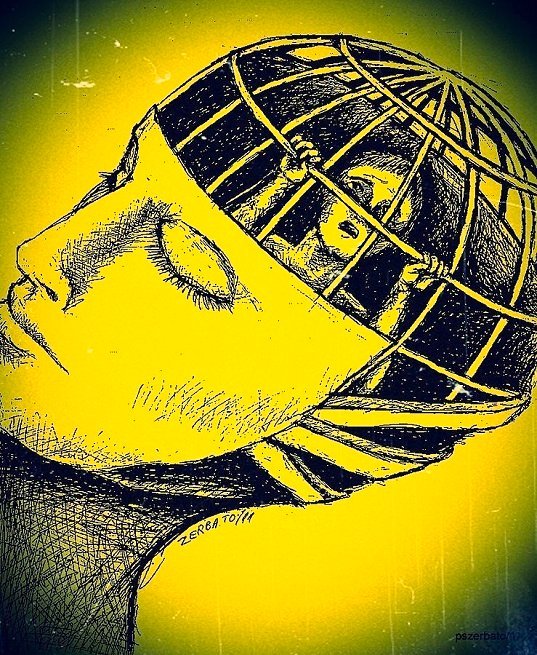Where does the conscience come from? /Part 2/
Part one
Good faith - Let's imagine we go to a restaurant and order food. We see the waiter, but we do not see the cook. And we pay the waiter for the chef's work. We expect that the "invisible" chef will not just perform his duties (he will keep the weight and the combination of products), but he will do morally and will not hurt us, through poor quality products or poor hygiene. What we expect in such cases from others is called "good faith". It is difficult to define, but we often rely only on it. Therefore, good faith is an important part of our subtle human relationships. The doctor is conscientious when he does not pay attention to us and prescribes the best treatment and the best medicines. Goodwill is our acquaintance who gives us the loan at the agreed time and without prompting. The professor is conscientious when he does not save his knowledge. Without good faith, it is impossible to rely on the moral worries of others. Without it, perfectionism is impossible. Only the waking conscience can make the pianist play and the athlete to practice hours every day and for many years. The lack of this moral self-control is the most common reason why one can not achieve his goals and suffer professional misfortunes.
Sincerity and honesty. More moral actions are based on conscience. It is their foundation and we can recognize its contribution to each of them. Conscience makes the soul transparent to itself. The man with openness to ourselves and to the other souls is called sincere. He does not conceal his actions in words, there is symmetry between the inner and the outer. Of course, children are sincere, so in every sincere person we find something childish. Sincerity is only possible in a pure conscience. An honest person is one in whom there is no contradiction between thoughts, words, and actions. While sincerity is child-spontaneous, honesty is "more mature," with more reflection and consciousness. Honesty is consciously chosen and followed in life by a moral position. The Honest Word. Why do we keep that word? We say, "I'm counting on his honest word," "a word - thrown stone." Conscience is the guarantor that the word is fair. Conscience gives the word "weight". If we did not have such moral defenses, then at every action we had to rely on the constraint of law or physical force. Honest word is a moral treaty. Such a contract is not recorded on paper, but in the soul. The conscience illuminates this treaty and guarantees its meaning in order not to be disturbed or changed. People with honest words can easily work because they are trusting. With those who "do not keep their word," we are always on the alert. We must have one-on-one at all times and be guaranteed through variants and through legal clauses. Intellectual Honesty - Friedrich Nietzsche accuses many thinkers before him in the absence of "intellectual honesty." But is not the scientist enough to study his subject according to the rules of science? Is there any extra morality? It turns out that even in abstract science there are even moral problems. Searching for truth is not just a matter of information, knowledge, methods or apparatus. Often moral prejudices are the biggest obstacle to the truth. Intellectual honesty is the researcher's pure conscience. It depends on whether he will dare to ask "awkward questions", whether he will explore "forbidden territories", whether he will oppose the "strong of the day", whether he will accept results he does not like because they are in conflict with his religious, social or cultural values, or because they do not like its superiors or sponsors.
Goods have a price, and man - dignity. On Immanuel Kant we owe the idea that man's dignity is based on human self-esteem. But what about self-worth? We know that the goods on the showcases have a price. Some are with a higher price, others with a lower price. The price is a sign of market commensurability. The price co-applies and co-measures one commodity with each other on the market, ie. in the range of things to sell according to the average market demand. Therefore, the price shows the "relative value" of marketable items for average market demand. However, the human being has "absolute value". It is absolute, because it does not come from comparisons, it does not depend on the "state of the market" and the "consumer demand". Here we come across a value "on its own", or, as Kant says, "internal value". Dignity therefore expresses one's "inner value". Before we give any specific characteristics of man, he, as a human being, as a part of humanity, already has "his own human dignity." Dignity expresses the self-worth of every individual as a person. Even the criminal should not be humiliated because we owe him respect as a human being, even though we punish him for his actions as a particular individual.

To listen to the audio version of this article click on the play image.

Brought to you by @tts. If you find it useful please consider upvoting this reply.